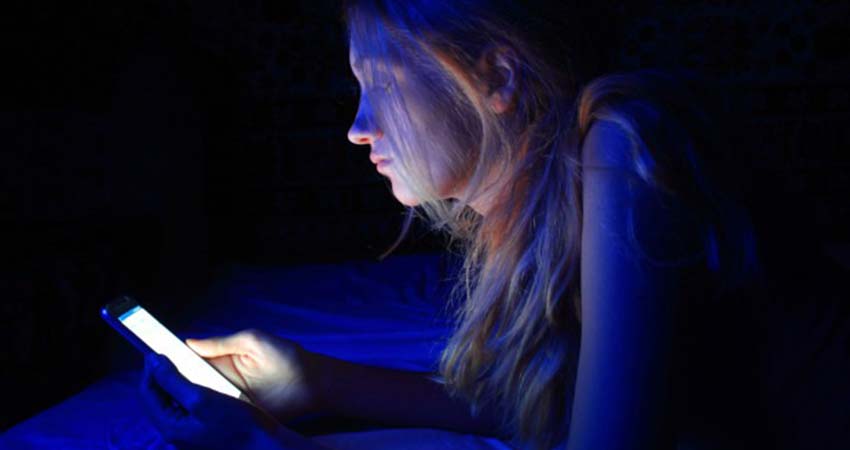Blue light is the visible light spectrum. Blue light has the shortest wavelength and high frequency that is similar to ultraviolet rays. The effect of blue light can be both beneficial and dangerous.
Here is the impact of blue light on eyes and sleep –
Effect of Blue light on eyes
Exposure to Blue light may increase the risk of macular degeneration. Effect of blue light on your eyes can be harmful to your healthy-looking eyes. The fact that blue light penetrates all the way to the retina is important because laboratory studies have shown that too much exposure to blue light can damage light-sensitive cells in the retina.
Effect of blue light on sleep
Blue light is not only harmful to your eyes but the effect of blue light on sleep is another disastrous impact that you can feel because of too much exposure to blue light. Also, exposure to all colours of light helps control your natural sleep-wake cycle or circadian rhythm. More than any other colour, blue light messes with your body’s ability to prepare for sleep because it blocks a hormone called melatonin that makes you sleepy.
Avoid looking at bright screens beginning two to three hours before bed. If you use a lot of electronic devices at night, consider wearing blue-blocking glasses or installing an app that filters the blue/green wavelength at night. This can help get better quality sleep.
Moderate blue light from the sun is supposedly beneficial during daylight hours because they boost attention, reaction times, and mood. These lights are great for the daytime because they keep us awake, and bad at night because they impede sleep. So it is important to take account of devices with blue light.
DISCLAIMER: THIS ARTICLE DOES NOT PROVIDE MEDICAL ADVICE
The information contained in this article is for informational purposes only. It is not intended to be a substitute for professional medical advice, diagnosis, or treatment. Never disregard professional medical advice or delay in seeking it because of something you have read in this article.




